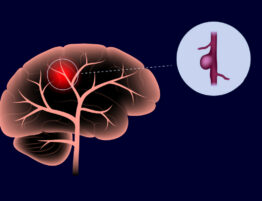Sleep disturbance can occur for various reasons. Sometimes, it is a short-term disruption of the body’s normal activities. But if your sleep is disturbed for a long period, more than three months, then it already speaks of a chronic stage of insomnia. Also, chronic insomnia refers to sleep disturbances more than three times a week. To cure chronic insomnia, you will need to resort to:
- medication;
- psychotherapeutic treatment;
- lifestyle changes.
If you feel that you live in a vicious circle:
- evening activity;
- difficulty falling asleep;
- shallow intermittent sleep;
- deepening sleep in the morning;
- the need to rise when you want to sleep;
- daytime sleepiness co, reduced speed of thinking and concentration.
Then, we can safely say you have all the signs of chronic insomnia. Sleep is very important. Difficulty falling asleep, awakenings at night, daytime sleepiness, and disorders make life painful. So read our article further to know all the details of chronic insomnia.
What is Chronic Insomnia?
Chronic insomnia is a pathological condition with:
- a daytime sleep disorder;
- severe daytime sleepiness.
It is difficult for a person to fall asleep. His sleep is shallow and intermittent. He often wakes up in the middle of the night and cannot fall asleep again. This problem is faced by 30% of people.
Chronic insomnia negatively affects the work of the entire body:
- the immune system is disturbed;
- increases the risk of digestive diseases;
- develop neurological disorders and psycho-emotional disorders;
- memory deteriorates, attention concentration decreases;
- cardiovascular diseases develop;
- insomnia can lead to infertility, menstrual disorders, diabetes mellitus, and thyroid dysfunction.
People with chronic insomnia are often overweight. This is due to impaired fat metabolism and metabolic disorders.
The risk of developing severe insomnia for years is higher in certain categories of patients:
- Women. Hormonal fluctuations throughout the menstrual cycle increase the likelihood of anxiety states. They interfere with normal sleep. Disorders during menopause also influence these symptoms.
- Individuals over 60 years of age. Age-related changes in sleep patterns and an increasing need for rest are in this field. Associated pathologies and pain syndromes of diverse pathogenesis can lead to chronic insomnia.
- Individuals are susceptible to psychoemotional disorders. Many illnesses can lead to problems falling asleep. It includes:
-
- depression and neurodegenerative diseases;
- PTSD;
- bipolar disorder.
Chronic insomnia with very early awakening (4-5 a.m.) and inability to fall asleep again is one of the main signs of depressive disorder.
- Patients who regularly experience stress. Severe shocks, such as serious illness or death of a loved one and other life troubles, can provoke temporary or chronic insomnia. Material difficulties and increased intellectual or physical load do not allow the body to rest fully. So, they are risk factors for sleep disorders.
- Persons who work at night or on a floating schedule. Unregulated working hours with constant overwork keep a person in a stressful state for a long time. Chronic stress, sooner or later, leads to sleep problems.
Difference between chronic and acute insomnia
Chronic insomnia is a long-term sleep disorder that persists for at least three nights a week for three months or more. It often results from underlying factors such as stress, anxiety, depression, or medical conditions. Symptoms include difficulty falling asleep or staying asleep. It leads to daytime fatigue, irritability, and reduced quality of life. Managing insomnia symptoms typically involves:
- lifestyle changes;
- cognitive-behavioral therapy;
- sometimes medication prescribed by a healthcare professional.
Acute insomnia is short-lived, lasting for a few nights to a few weeks, and is often triggered by specific events like stress, jet lag, or illness. It results in temporary sleep disturbances. It leads to difficulty sleeping and similar daytime symptoms as chronic insomnia. Acute insomnia generally resolves on its own when the underlying cause is addressed. Strategies to manage it may include:
- relaxation techniques;
- improved sleep hygiene;
- short-term use of over-the-counter sleep aids.
Symptoms of Insomnia
It is a deviation in the short term. But if the pathology persists for several months, we are discussing the development of such a disease as chronic insomnia. The deviation includes sleep disorders that occur more than three times a week. To suspect the development of chronic insomnia in yourself or a loved one, you can detect one or more of the following signs:
- Waking up without an alarm clock (as a result, the time of night rest is greatly reduced, the person rests less than 6 hours);
- it takes at least 30 minutes to fall asleep;
- frequent awakening at night (the total duration of the waking period is half an hour or more);
- severe sleepiness and fatigue during the day.
Over time, prolonged sleep disturbances lead to constant headaches. A person becomes irritable and emotionally unstable. In the absence of treatment, apathy and depression develop. The patient does not want to engage in work or household chores and begins to be indifferent to his appearance and health. Read below in more detail about all the insomnia symptoms.
Sleep disturbances
People with insomnia commonly experience:
- difficulties falling asleep;
- frequent awakenings during the night;
- early morning awakenings and restlessness.
These disturbances reduce sleep duration and contribute to daytime fatigue. Irritability and impaired concentration may also occur.
Daytime Dizziness
It is a common consequence of sleep disorders such as insomnia, sleep apnea, and restless leg syndrome. It refers to excessive tiredness and drowsiness experienced during the waking hours. Dizziness can significantly:
- impair cognitive function;
- decrease alertness;
- negatively impact daily activities.
Identifying and addressing its underlying causes are essential for improving overall well-being. It also ensures better daytime productivity and quality of life.
Reduced Emotional Well-being
It refers to a state of diminished mental and emotional health. It can manifest as increased stress, anxiety, depression, or a general sense of emotional imbalance. Various factors can reduce emotional well-being. It includes life events, chronic stress, and medical conditions. Addressing these factors is essential to restoring emotional balance and enhancing mental health to cure insomnia. You can do it through counseling, therapy, lifestyle changes, or medical intervention.
Nighttime and Early Morning Awakenings
These are sleep disturbances commonly associated with insomnia. Nighttime awakenings refer to waking up multiple times during the night, disrupting the sleep cycle. Early morning awakenings involve waking up well before the desired wake-up time and often feeling unable to return to sleep. These disturbances reduce sleep duration. It contributes to daytime fatigue and impacts one’s quality of life. Identifying their underlying causes and addressing them is crucial for improving sleep quality.
How to Cure Insomnia?
Treatment of insomnia is mostly done on an outpatient basis. Only for diagnosis may require a stay in the hospital.
Insomnia treatment methods are chosen strictly personalized. They also depend on what caused this condition. The specialist teaches the patient what to do if insomnia appears and how to fall asleep during this period. It is important to make a daily routine and follow the plan. It is worth giving up gadgets before bedtime, walking outside, having a light dinner, and excluding alcohol. One should give up prolonged use of a computer or laptop for online gaming. Two disorders, like chronic insomnia and gaming addiction, often go side by side.
It is helpful to learn relaxation or meditation techniques to cope with anxiety and bad thoughts. Treatment of insomnia without effect from simple rules on sleep hygiene continues with medications. These are:
- benzodiazepines, prescribed for a short period;
- sleeping pills of non-benzodiazepine series.
They help fall asleep but do not eliminate the causes of insomnia. This was an overall summary, and you can read more about how to cure insomnia.
Establish a Routine
Creating a daily routine is vital in managing chronic insomnia. A consistent sleep schedule with fixed bedtime and wake-up times regulates the body’s internal clock. Wind-down activities, such as reading or relaxation techniques, prepare the mind for sleep. Limiting screen time before bed and controlling light and noise in the sleep environment contribute to better sleep. Regular exercise, mindful stress management, and a balanced diet aid sleep. Track progress through a sleep diary, and consult a healthcare professional if insomnia persists.
Reduce Energy Stimulators
To promote quality sleep and get rid of chronic insomnia, limit energy stimulators in the evening. Avoid caffeine and nicotine several hours before bedtime, as these substances can disrupt sleep. Additionally, minimize strenuous exercise close to bedtime, as it can be stimulating. Diminish exposure to bright screens can interfere with melatonin production. You can eliminate phones and computers at least an hour before sleep, as the blue light is emitted. Reducing these energy stimulators can improve your chances of getting a good night’s rest.
Create a Restful Environment
To foster better sleep, curate a serene sleep environment. Start with a comfortable mattress and pillows. Ensure the room is dark with blackout curtains and minimize noise disruptions with earplugs or white noise machines. Maintain a cool and well-ventilated room. Remove electronic devices and avoid heavy meals or caffeine before bedtime to cure insomnia symptoms. Establish a calming bedtime routine and keep a consistent sleep schedule. These steps promote a tranquil atmosphere conducive to restful sleep.
Air Out the Room
Ensuring proper ventilation in your bedroom can enhance sleep quality. Open windows or use a fan to bring in fresh air, maintaining a comfortable room temperature. Adequate ventilation helps regulate humidity levels, preventing discomfort during the night. A well-ventilated room promotes better air quality. It creates a more conducive environment for restful sleep.
Conclusion
Chronic insomnia is a sleep disorder that affects millions. It impacts physical and emotional well-being. Understanding its causes and symptoms is crucial for those seeking relief. While lifestyle changes and behavioral interventions can be effective, some require specialized care. At Lone Star Neurology, we’re dedicated to diagnosing and treating sleep disorders. So we offer solutions tailored to your needs. Don’t let chronic insomnia disrupt your life. Contact us for expert guidance and a path to restorative sleep. Your journey to a well-rested life begins with us.
FAQ
How do I know if I have insomnia?
You may have insomnia if you consistently have trouble falling asleep, staying asleep, or waking up too early and feeling daytime fatigue or irritability. A medical evaluation can confirm the diagnosis.
What are the main causes of chronic insomnia?
Various factors, including stress, anxiety, depression, medical conditions, medications, and poor sleep habits can trigger chronic insomnia.
Can chronic insomnia lead to other health problems?
Yes, chronic insomnia can lead to various health issues, including increased risk of mood disorders, impaired cognitive function, cardiovascular problems, and weakened immune system function.
Can lifestyle changes help chronic insomnia?
Yes, it can alleviate chronic insomnia. If problems persist, consult a healthcare professional for guidance and treatment.













Please, leave your review
Write a comment: